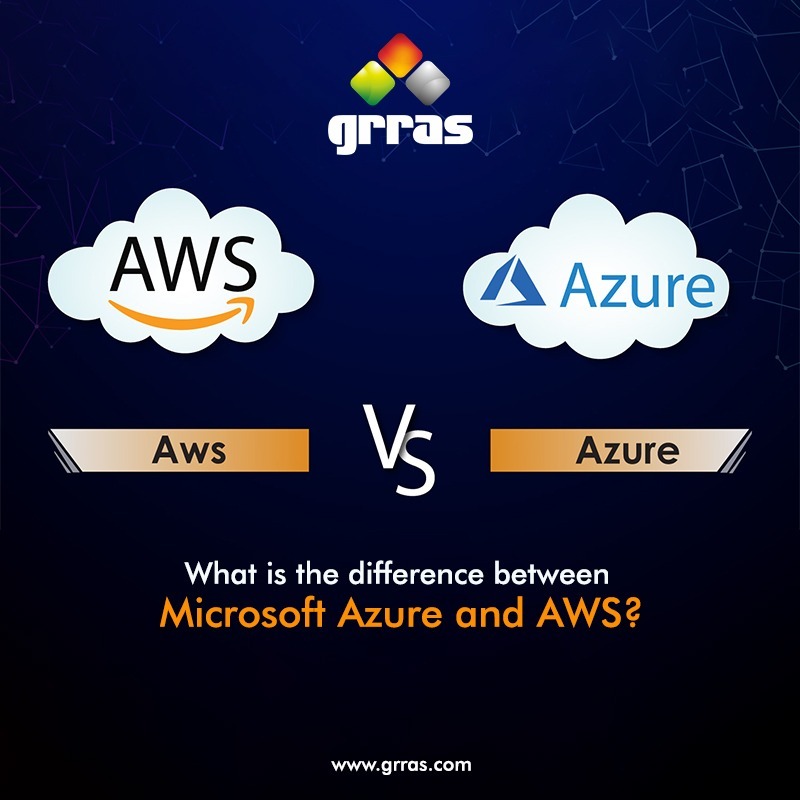What is the difference between Microsoft Azure and AWS?
Microsoft Azure and AWS (Amazon Web Services) offer a similar set of cloud capabilities and core features. In spite of all these similarities, there is a distinct line of difference between these in terms of some essential aspects, making them both candidates for a healthy and tough competition.
If you are
not certain that which one to go for and whether to choose Microsoft Azure
training or AWS training, then this article is the right piece of knowledge for
you because here we are going to give you an answer to one of the most
frequently asked questions – what is the difference between Microsoft Azure and
AWS. By the end of this article, you will have a tentative idea about both of
these, along with an idea about which one has a better future and holds more
chances of success.
Before we
dive into the difference between Microsoft Azure and AWS, let us get through a
brief introduction for both of these. It will give us clear picture about what we are about to
learn.
What is AWS
(Amazon Web Services)?
Amazon Web
Services, more popularly referred to as AWS, is a subsidiary of the technology
and ecommerce giant Amazon. With millions of users ranging from start- ups to
humongous enterprises and from SMEs to government agencies, AWS has its roots
and wings both spread across the globe. It offers more than 200 services via
data centres placed globally and has become a leading name today when it comes
cloud services.
What is
Microsoft Azure?
Microsoft
Azure, which is more commonly referred to as Azure, is one of the most well-
known cloud providers after AWS. Azure helps in the management of apps via
Microsoft- operated data centres, which are spread throughout the globe. This
platform offers quite a good variety of cloud services such as networking,
computing, analytics and storage. Just like AWS, Azure has an extensive toolkit
which is experiencing a constant growth. It has been in the industry for more
than 10 years now.
While AWS
and Azure are similar in a lot of aspects, there are many features that set
them apart. Based on these distinctions, you can choose which one you wish to
move ahead with.
Difference
between Microsoft Azure and AWS
Here are
some of the differences you should know about between Microsoft Azure and AWS.
1. Their
Approach towards Computing Power Usage & Provisioning
One of the
biggest issues with computing is scalability and each of these providers have
distinct ways of addressing them. AWS makes the use of EC2 or Elastic Cloud
Computing.
On the
other hand, Microsoft Azure users are offered with the alternative of creating
a Virtual Machine (VM) from a VHD (Virtual Hard Disc).
2. Security
& Data Privacy
AWS ensures
enhanced security and privacy by performing an exceptional task of selecting
secure alternatives as well as settings by default.
Azure, on
the other hand, uses Microsoft’s Cloud Defender service to offer optimum data
privacy and security. This is an AI (artificial intelligence) powered solutions
which shields against new threats.
3. License
Mobility & Licensing
While both
of these cloud providers are on fleek in ensuring that customers do not have to
face any issues related to license mobility or licensing hassles. Pay- as- you-
go pricing structure is followed by both.
Having said
that, it is much easier to set up Azure for Windows administrators. AWS,
however, is more feature- rich and configurable.
4. Machine
Learning Modelling
Here is
another one which both are equipped in. SageMaker by AWS offers complete
flexibility and freedom to create machine learning models. For this, you need
to be an expert in Python and be well- versed in Jupiter Notebook.
Azure
machine learning studio is more centred on offering a codeless experience.
5. Cloud
Storage Offerings
While the
offerings of both these cloud providers are different, both are almost equally
strong. AWS offers multiple services such as elastic block store (EBS), Glacier
and simple storage service (S3).
Microsoft
Azure, on the other hand, offers blob storage, standard archive and disk
storage.
6. Documentation
& Simplicity of Usage
AWS is one
of the leaders in this domain and offers quite a lot of features such as
dashboard and extensive documentation for its cloud services.
In the case
of Microsoft Azure, adding access rules and users is much more complex. Its
recommendation and documentation system are also less search- friendly and
intuitive.
7. Networking
& Content Delivery
With the
aid of AWS’ VPC (virtual private cloud), users have the chance to use the cloud
for generating isolated private networks.
In
comparison, Microsoft Azure makes the use of a virtual network and not a VPC.
8. Logging
and Monitoring
In the case
of AWS, SageMaker logs historical data and model metrics via CloudWatch. This
transforms the data into a usable format.
Azure machine learning studio makes the use of MLFlow for the purpose of monitoring and recording data.
So, it is
on you whether you wish to move ahead with Microsoft Azure training or AWStraining, but in any case, your future is going to be bright. And choosing
Grras Solutions is all that you need to do now!
Get Complete Guide On :
- What Technologies should a Full Stack Developer Know about?
- Best platforms for data science and machine learning
- Which Commands are used to Collect System and Hardware Information in Linux? Here are Five you Need to Know About!
- What are the top 10 Most Used AWS Services?
- What are the most Popular Linux Distributions and how are they used?
- Best Pay After Placement Training in Jaipur?



Comments
Post a Comment